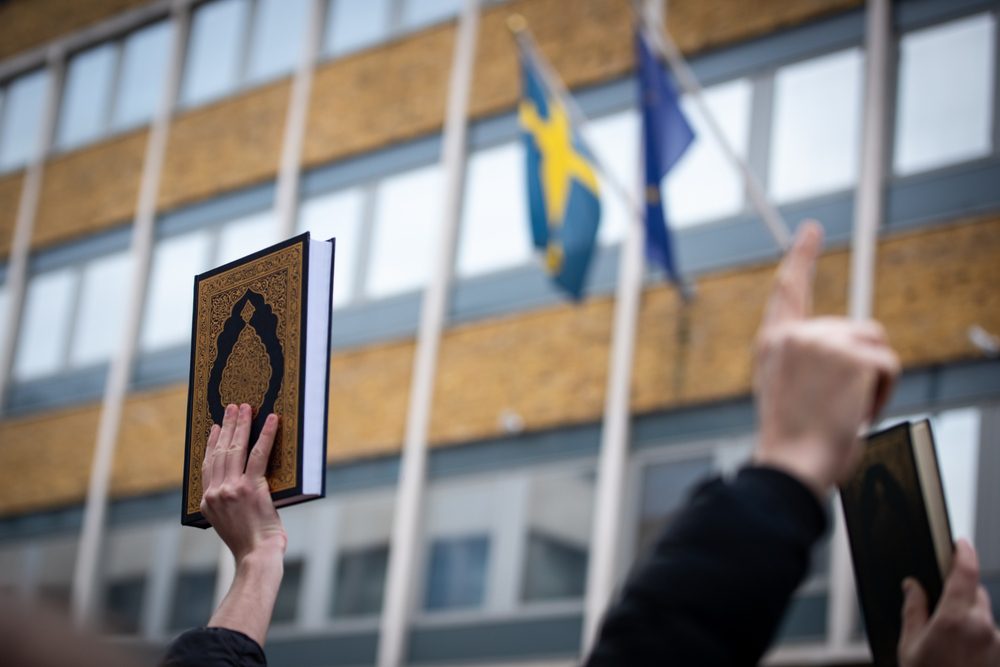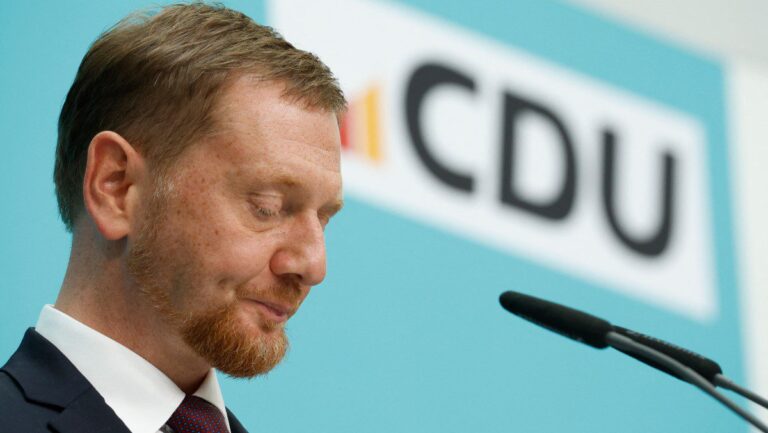Free speech is once again at the centre of the debate surrounding the recent Quran burnings in Sweden, as the right-wing party Sweden Democrats (SD) vows to oppose any changes to free speech laws or the outright ban of Quran burning protests.
Prime Minister Ulf Kristersson’s government said it would examine and, if there was reason to, change laws to make it possible for police to stop Quran burnings, amid concerns over national security. Iranian-born Rashid Farivar, a member of parliament for the Sweden Democrats, said:
I will defend Swedish freedom of expression until my last breath. It is not right that we back down in the face of the demands of dictatorships and Islamists, because what will be the next demand?
The party is not a member of the centre-right coalition government but gives its external support to Ulf Kristersson’s cabinet. “We have to stand up for our democracy and freedom of speech,” emphasised another Iranian-born SD politician, Nima Gholam Ali Pour.
Both Denmark and Sweden have been heavily criticised by Muslim countries for allowing anti-Islamic activists to burn the holy book of Islam, the Quran, in public. Most recently, a small group of activists set fire to copies of the book in front of the Egyptian and Turkish embassies in Copenhagen.
Turkey has delayed Sweden’s accession to NATO partly due to the Quran burnings, with Turkish Minister of Foreign Affairs Hakan Fidan calling the desecrations “vile actions” that were unacceptable under the pretence of “freedom of expression.” The Swedish Embassy in Baghdad was stormed by an angry mob after the Quran was stomped on outside the Iraqi embassy in Stockholm, causing diplomatic tensions between the two countries. Similar events have led to diplomatic strains between Denmark and Iraq. In the most recent development, a bomb resembling a Molotov cocktail was thrown at the Swedish Embassy in Beirut, but it was not triggered.
In February, Stockholm police attempted to ban the granting of permits for Quran burnings, but the ban was soon deemed unlawful by Swedish courts, and a court of appeals upheld the ruling, arguing that police concerns over security were not enough to stifle freedom of speech.
Changing the laws to allow such bans seems impossible, as Ulf Kristersson would have neither the support of the Sweden Democrats nor the Christian Democrats, one of his coalition partners. Deputy Prime Minister Ebba Busch, leader of the Christian Democrats, said that Sweden alone determines its own legislation and would not be influenced by other countries’ faiths or laws.
Sweden has laws banning hate speech against ethnic, national, and religious groups and against people based on sexual orientation, but burning holy scriptures has been seen as acceptable criticism, reports Reuters. However, public events such as Quran burnings can be banned if they threaten national security, and this is something the Kristersson government is taking a look at.
According to the country’s domestic security service, SAPO, the image of Sweden has changed “from a tolerant country to a country hostile to Islam and Muslims,” and this risks fueling threats against Sweden from violent Islamists. The Swedish police’s counter-terrorism chief, Magnus Sjöberg, also warned that Sweden could be a target for Islamist terrorists. “We have communications and communiqués from several terrorist groups that currently mention Sweden together with Denmark and the Netherlands. This makes the threat more tangible,” he said.
A poll by public broadcaster SVT suggests a majority of Swedes (53%) are against the burning of holy books, while 34% say they should be allowed.





